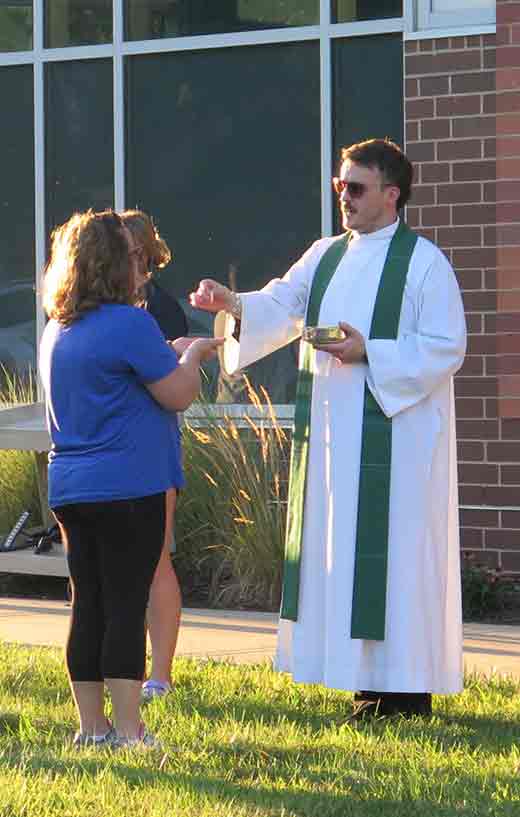Q. Is there an appropriate time to announce birthdays or anniversaries during the liturgy?

A. Practices on this vary widely across parishes. We are trying to balance two goods here: (1) a respect for the integrity, solemnity and “noble simplicity” of the liturgy and (2) a polite and appropriate acknowledgment of members of the community, which can serve to foster a deeper sense of communion.
The “General Instruction of the Roman Missal” states that as part of the concluding rites (following the Prayer after Communion, which properly concludes the Communion Rite) “brief announcements” may be made “if necessary.” What “necessary” means is up to some interpretation. Mrs. McGillicuddy may think it is absolutely “necessary” that the lady’s spring bazaar be announced from the altar a full month in advance and every week following, even though it has been in the bulletin and flyers are up at the entrances. But I’m not sure this is what the instruction envisions.
My rule of thumb is the fewer, the rarer and the briefer the announcements the better. Having said that, I know I can easily fall into the trap of a laundry list of announcements at the end of Mass. My feeling is that if something is truly important and imminent, then an announcement is appropriate. If not, we publish it in the weekly bulletin.
So what about birthdays and anniversaries? The revised “Order of Celebrating Matrimony” offers a blessing for couples on the anniversary of marriage within Mass (as did the “Book of Blessings” before it). This is done following the homily, starting with a blessing of rings, followed by the Creed (if on a Sunday/Solemnity) and the Universal Prayer (“intercessions”). Following the pattern of the nuptial blessing at a wedding Mass, after the Our Father the prayer “Deliver us” is omitted. The priest then extends his hands in a special blessing over the couple. There can also be a three-part solemn blessing at the end of the Mass. Recognizing significant anniversaries of parishioners is, therefore, allowed within the liturgy and can be a beautiful way to highlight the vocation of marriage.
So, what about birthdays? There is a “Blessing on the Occasion of a Birthday” in the “Book of Blessings” but no option is given for doing that within Mass. Especially in smaller, more tightly knit communities, some public acknowledgment of birthdays can be an important pastoral practice.
At Sacred Heart Cathedral in Davenport, we publish birthdays in the bulletin monthly (without years, of course), and, when asked, I do announce significant birthdays at Mass. We do not announce everyone’s birthday every week or have people stand up or sing “Happy Birthday.” Personally, I do think that takes away from the liturgy. Also, there can be the danger of only announcing certain peoples’ birthday and then it looks like “Father has his favorites.” If birthdays are to be recognized, ideally, this may be best done in any announcements before Mass or during the usual announcement time at the end of Mass (especially if inviting parishioners to a celebration following in the parish hall, for example).
Q. Why do we bow during the Creed when we say the words “and by the Holy Spirit was incarnate of the Virgin Mary, and became man?”
A. In fact, twice a year (at Christmas and on the Solemnity of the Annunciation, March 25) we don’t simply bow but genuflect (if able) at this part of the Creed. This is an ancient practice that shows special reverence for the mystery of the Incarnation, that God became man, the “Word became flesh.” Without that, we’re sunk!
(Father Thom Hennen serves as the pastor of Sacred Heart Cathedral in Davenport. Send questions to messenger@davenportdiocese.org)







